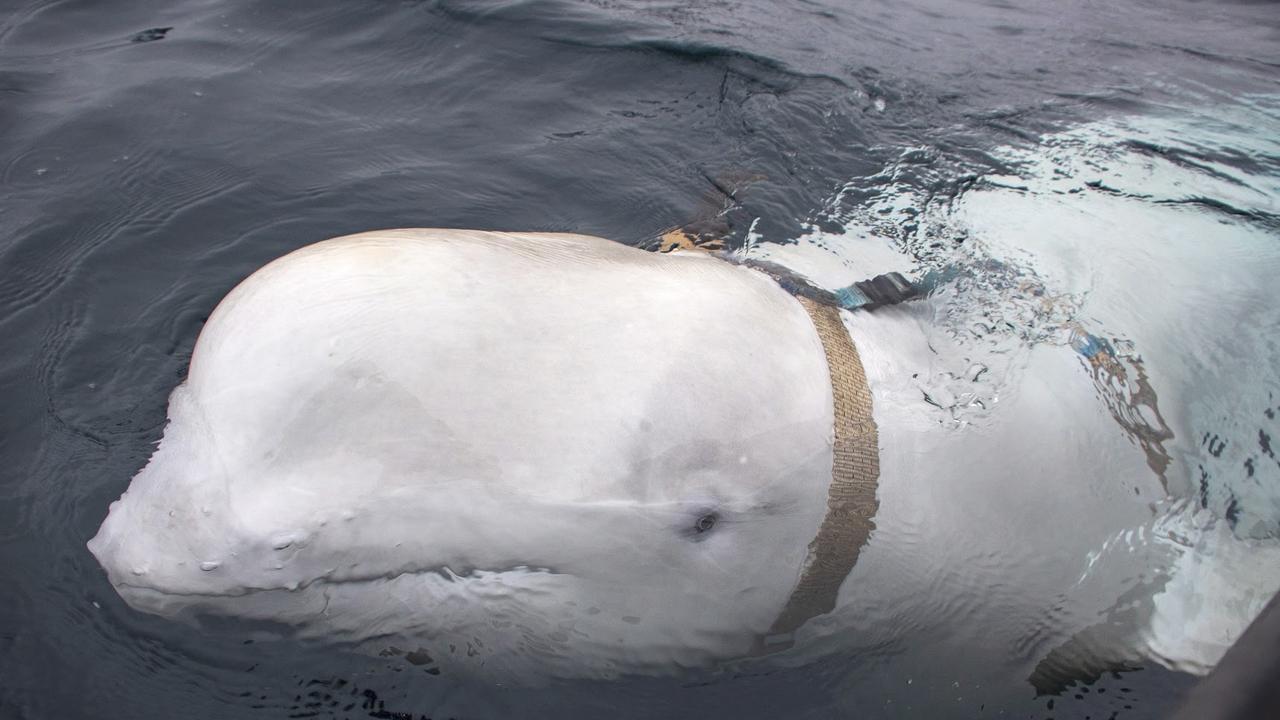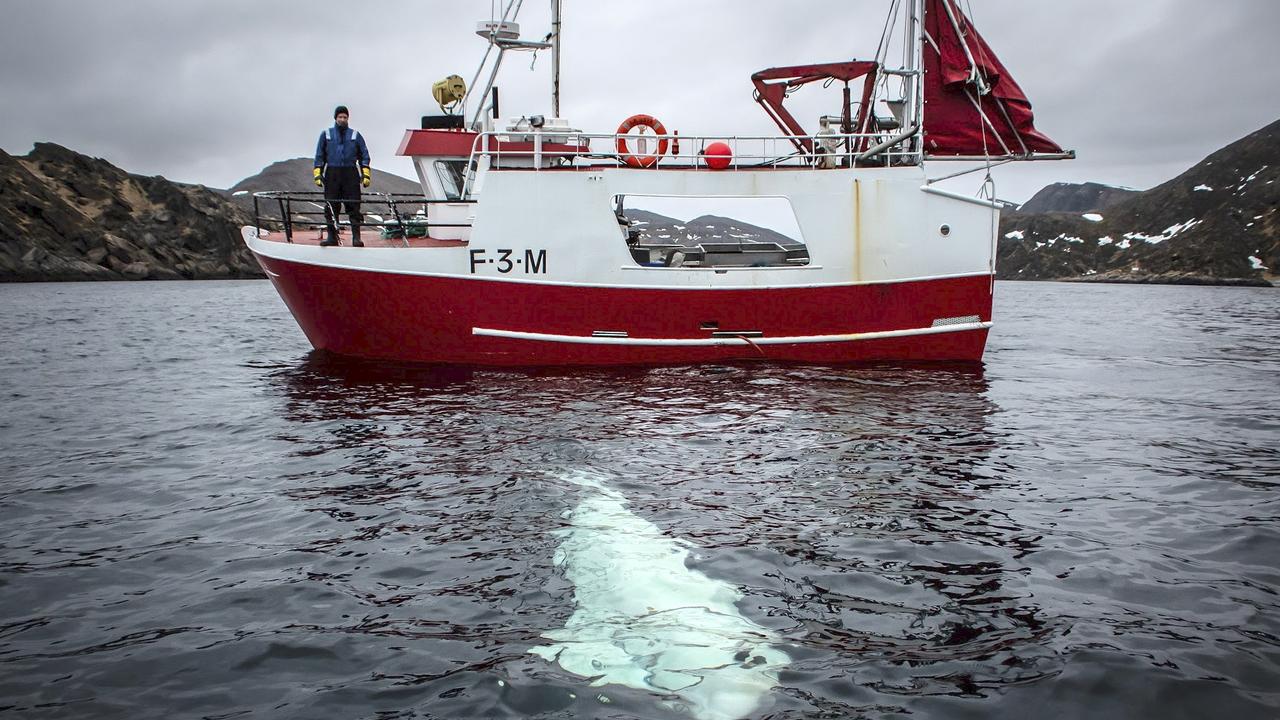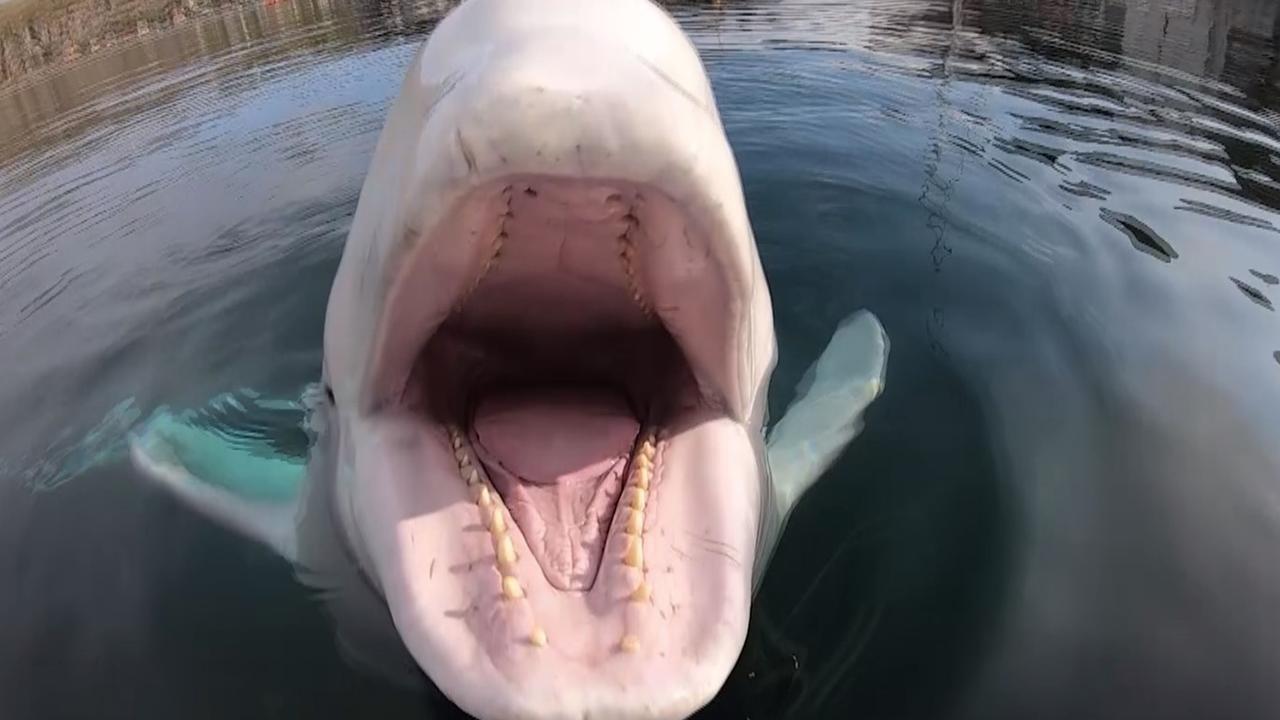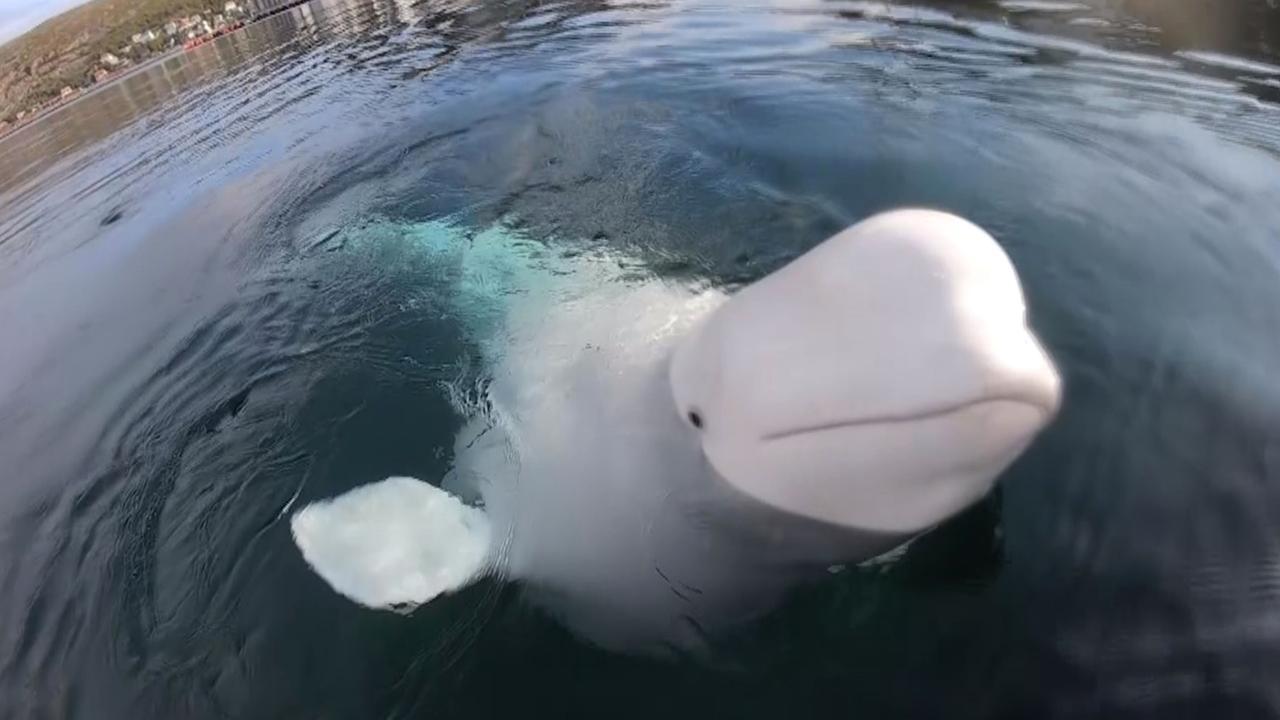‘Equipment St. Petersburg’: Eerie words found on Russian ‘spy whale’
A Beluga whale that was found with a suspicious item strapped to its body in 2019 has been spotted “moving very quickly away from its natural environment”.
A Beluga “spy whale” suspected to be trained by the Russian navy has appeared off Sweden’s coast.
The whale was first spotted by fishermen in Norway’s far northern region of Finnmark in 2019 with a man-made harness strapped around its body.
The suspicious harness, which was removed by marine biologists, had a mount suited for an action camera and the words “Equipment St. Petersburg” printed on the plastic clasps.
Directorate officials said Hvaldimir may have escaped an enclosure, and may have been trained by the Russian navy as it appeared to be accustomed to humans.
The whale has spent over three years slowly travelling down the top half of the Norwegian coastline, but has sped up in recent months and moved away from its natural environment.
On Sunday, he was spotted in Hunnebostrand, off Sweden’s southwestern coast.

“We don’t know why he has sped up so fast right now, especially since he is moving very quickly away from his natural environment”, Sebastian Strand, a marine biologist with the OneWhale organisation, told AFP.
“It could be hormones driving him to find a mate. Or it could be loneliness as Belugas are a very social species -- it could be that he’s searching for other Beluga whales.”
Believed to be 13-14 years old, Strand said the whale is “at an age where his hormones are very high”.
The closest population of Belugas is located in the Svalbard archipelago, in Norway’s far north.
The whale is not believed to have seen a single Beluga since arriving in Norway in April 2019.


Norwegians nicknamed it “Hvaldimir” - a pun on the word “whale” in Norwegian, hval, and a nod to its alleged association to Russia.
Moscow has never issued any official reaction to Norwegian speculation the whale could be a “Russian spy”.
The Barents Sea is a strategic geopolitical area where Western and Russian submarine movements are monitored.
It is also the gateway to the Northern Route that shortens maritime journeys between the Atlantic and Pacific oceans.

Strand said the whale’s health “seemed to be very good” in recent years, foraging wild fish under Norway’s salmon farms.
But his organisation was concerned about Hvaldimir’s ability to find food in Sweden, and already observed some weight loss.
Beluga whales, which can reach a size of six metres (20 feet) and live to between 40 and 60 years of age, generally inhabit the icy waters around Greenland, northern Norway and Russia.
– With AFP




